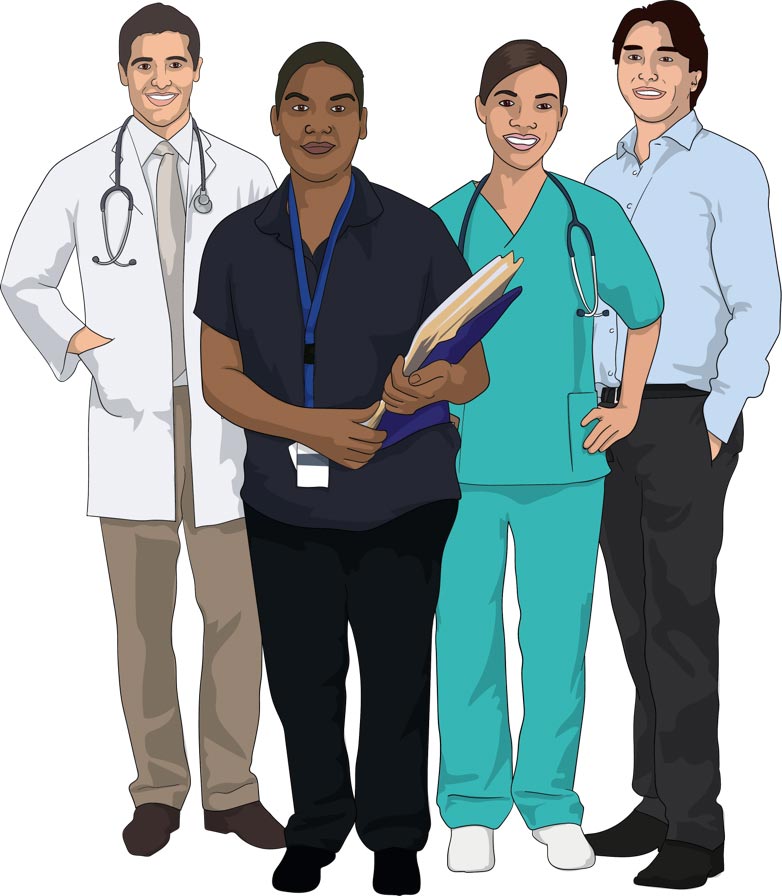Who can help?
Elders can make you feel at home and you can draw on their wisdom to support you through the cancer journey.
Family and friends are important and they’ll want to help. Let them know what you need and how best to support you.
Aboriginal and/or Torres Strait Islander health workers are there to help create a culturally safe space and understand culture, offer support and answer questions. They can guide you through the health care system and assist with your cultural needs.
Aboriginal Liaison Officers work in hospitals and can help you through your time there.
General Practitioners (GPs/doctors) can put you in touch with people who provide emotional, spiritual and practical support.
Cancer nurses are experienced in helping people cope with many aspects of having cancer.
Traditional Healers can work with you in personal, cultural ways.
Social workers offer advice about finances and practical support.
Psychologists do assessments for mental health and wellbeing issues and can do counselling and make plans for improving wellbeing.
Psychiatrists are doctors who help identify and treat mental health and wellbeing concerns like depression and anxiety.
Counsellors are there to listen to your story. They help you work out what’s worrying you and how to handle it. If your local health service or hospital doesn’t have one, you can call the Cancer Council Helpline on 13 11 20.
Occupational therapists help you overcome physical problems or barriers caused by cancer and treatment.
Physiotherapists provide physical support, massage and manipulation to help with mobility and reduce pain that could come from cancer and treatment.
Speech therapists help you with speech, eating and swallowing problems if these happen from cancer or treatment.
Dietitians or nutritionists help you to overcome eating problems and have a healthy diet that’s right for you.


